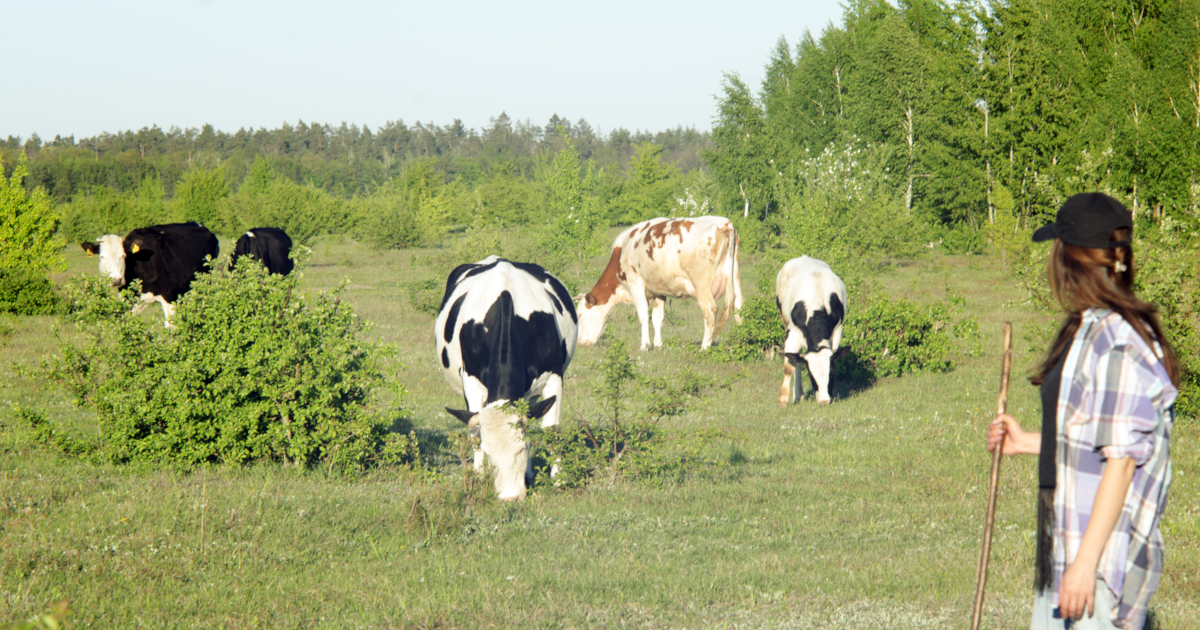
A New Generation of Carbon Farmers: Organic, Grass-Fed Ranch Connects Young Women to Agriculture
February 6, 2019 | Julie Wilson
Organic Consumers Association
For millennia, women have played a central role in farming and ranching communities. Today, a new generation of women are taking on new roles of carbon farmers and ranchers managers.
In the U.S., there are more than 900,000 women farmers, according to data collected in 2012 by the U.S. Department of Agriculture. That means women constitute 31 percent of the agricultural sector, and contribute upwards of $12 billion to America’s economy.
Historically, men have been considered a better fit for work in the agriculture field, work often characterized as rugged and ruthless. But as regenerative agriculture becomes more popular, women are bringing unique strengths to the field.
At San Juan Ranch in Colorado’s San Luis Valley, a woman’s kindness and affinity for animals is viewed as a key component in producing humanely raised livestock. The 4,000-acre ranch, owned and operated by Julie Sullivan and George Whitten, is a certified organic, 100-percent grass-fed beef ranch that doubles as a teaching center. Sullivan told the Colorado Springs Gazette:
“I think a deep relationship (with the land and animals) really appeals to the young women who want to go into agriculture, or at least the young women that come here. I think that they’re looking for a way for their life to have meaning, for a way to feel their strength and their capacity inside the context of a relationship.”
For more than a decade, Sullivan and Whitten have hired interns or apprentices through the Quivira Coalition’s New Agrarian Program. The interns work full time on the ranch for one year, learning about holistic management, animal husbandry, planned grazing, herding, ranch infrastructure maintenance, soil health, cover cropping, low-stress livestock handling, organic certification and the process for finishing grass-fed cattle. According to Quivira’s website:
Apprentices emerge from the program with tangible skills, both technical and interpersonal, that are essential for successful employment in sustainable agriculture, and for eventual ownership and management of their own operation.
The majority of interns hired to work at San Juan Ranch thus far have been women. In the beginning, Whitten was hesitant to hire women because he was unsure of their willingness to tackle some of the grittier parts of ranching. Again, from the Colorado Springs Gazette:
“Ranching communities have always had really strong women outside doing ranch work, but often those were people that either their husband had died or there were no sons in the family. George just didn’t think that young women would want to be covered in blood and puss and do branding and do castrating and want to lay underneath the truck and get oil in their face. It just hadn’t been his personal experience that women would want to do sort of some of that dirty messy part of ranching.”
Whitten, however, changed his mind—and his view of the role women play on the ranch—after their first female hire.
Among the women apprentices at San Juan Ranch is 25-year-old Morgan Atkinson, an Idaho native whose love for the great outdoors led to an interest in western land management and ranching and grazing practices. Growing up, Atkinson spent summers working at her family’s local grocery store. It was through this experience, as well as her education in environmental science, that Atkinson developed an interest in the way landscapes are used to produce food. She realized that maintaining a healthy ecosystem is key to producing healthy food, healthy soil and healthy animals. Atkinson says:
“Being raised in a small community taught me the necessity of supporting the local farmer we knew rather than blindly buying food unaware of where it was coming from. Because we are a local and independent grocery store, we rely on the same kind of local support and reciprocity. When I became independently interested in agriculture, I recognized that these ideas were already ingrained in my values.”
By connecting young women to ranching and organic regenerative agriculture, San Juan Ranch is helping to build a new generation of carbon farmers with an emphasis on animal welfare. The cows at the ranch are 100-percent grass-fed, and when finished, are mainly sold wholesale through Sweet Grass Cooperative, a co-op co-founded by Sullivan and Whitten that’s comprised of small, sustainable ranchers.
With more than 30 years of experience in holistic management, Whitten understands the symbiotic relationship between purposeful cattle grazing and the carbon-sequestering potential of healthy grasslands. Through cover cropping and holistic grazing, the land at San Juan Ranch remains productive despite enduring severe droughts and other unpredictable climate change-driven weather patterns.
The ranch also partners with organic farmers who raise green cover crops as grazing forage. Grazing cattle on these fields allows ranchers to increase soil carbon and improve soil structure, while also finishing the cattle on high-quality forage.
Want to help increase the number of livestock farmers in your area raising grass-fed beef and pasture-raised pork and poultry? Ask your representatives in Congress to be original cosponsors of the New Markets for State-Inspected Meat and Poultry Act and the Processing Revival and Intrastate Meat Exemption (PRIME) Act. Click here to learn more.
Julie Wilson is communications associate for the Organic Consumers Association (OCA). To keep up with OCA news and alerts, sign up for our newsletter.
